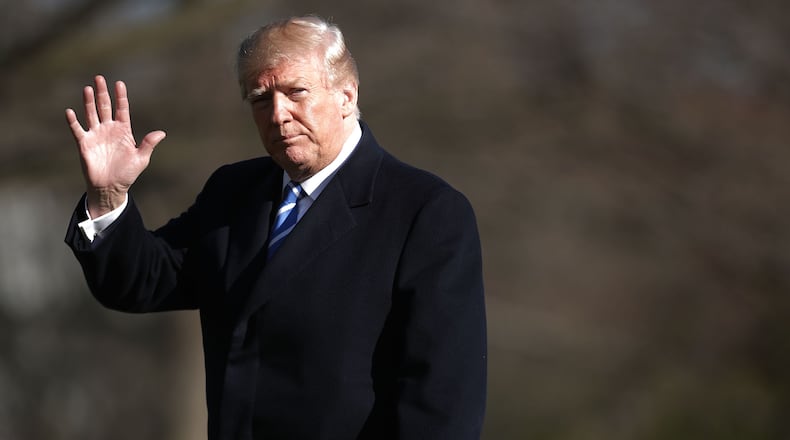Monique Kluczykowski taught for many years in Georgia, and is now a poet and essayist living in Iowa.
She wrote a great column for the blog with advice for college freshmen, which you can find here.
In this new guest column, Kluczykowski responds to Donald Trump’s recent comments in Ohio that he does not know what community college means. ‘‘Call it vocational and technical. People know what that means. They don't know what a community college means,” he said.
He made similar remarks in the past, saying in a January speech in West Virginia: “I think vocation is a much better word in a lot of cases than community college. A lot of people don't know what community college means or represents.”
By Monique Kluczykowski
An Open Letter to President Trump:
I understand that you seem to have trouble with the concept of what a community college is, so allow me — a veteran professor at community colleges for more than 30 years — to explain what we are and what we do.
You appear confused, admittedly like quite a few others, over the difference between a community college and a technical/vocational college, but this confusion is easily remedied. Think of these two colleges as separate entities: the community college is focused on the liberal arts and science programs (essentially a curriculum replicating the first two years of any college/university), while the technical college is meant to train students for careers in heating and air conditioning repair, car maintenance, and dental hygiene (to name only a few).
In some states, these two types of college are run by separate boards, a concept I feel sure you are familiar with. Thus, in Georgia, I taught at a community college across the street from a technical college, and though we had a few crossover programs in the sciences, we were independent entities with our own administrations and mission statements.
Now that I am in Iowa, I teach at a comprehensive community college — one you actually visited — which simply means the liberal arts college and the technical school are under one umbrella, governed by the same board.
So, at my institution, a student may complete his or her freshman and sophomore year as a history or nursing major, and then transfer seamlessly into one of Iowa’s senior colleges/universities. Or, that student may choose to get an associate’s degree in diesel ag or a diploma in plumbing or HVAC.
But the kinds of degrees we offer are only part of our purpose: a community college is just that — a part of the community. We are located in convenient places for students of all ages, including those who are parents and working full-time jobs.
As a real-estate mogul, you surely understand the importance of location, location, location. Many of our students cannot travel 60 miles one way after work to take a course or get that degree which will earn them a promotion with better pay.
Community colleges also offer innumerable continuing credit courses in everything from oil painting to bookkeeping, and yes, even real estate certificates. These courses are a boon to people looking to enhance skills without necessarily earning a degree.
And despite widespread ugly stereotyping, community colleges offer a rigorous education. Because our classes are smaller than most universities’ and our professors are hired for their ability to teach, our graduates and transfers can compete at any level. I’ve received letters from former students who have gone on to prestigious universities and have earned multiple graduate degrees, including doctorates.
But the best part of community colleges? We admit everyone: the people who goofed off in high school, the people who chose to enter the military or work before going to school, the people who screwed up and need another chance, a fresh start. We offer hope; we are an open door for those who feel shut out.
So, please encourage states not to cut funding to community and technical colleges. We are always the first on the chopping block, and yet 42 percent of America’s undergraduates are enrolled in community colleges: we cannot continue our mission with less.
You say you want to improve the economy: invest in people who are doing everything they can to achieve the American dream. Invest in community colleges. Invest in hope.
About the Author
Keep Reading
The Latest
Featured



